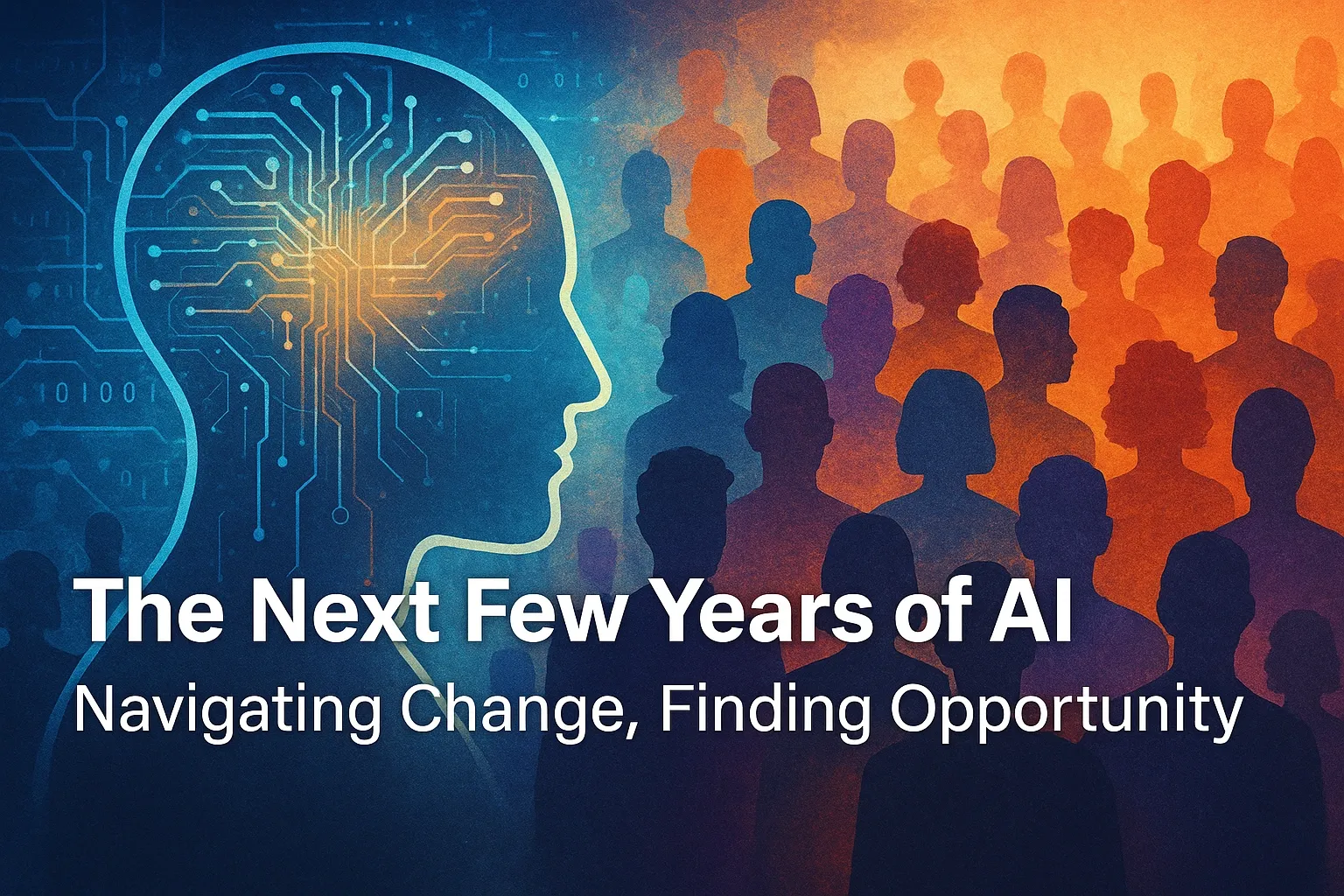Artificial Intelligence is no longer a distant promise, it’s here, woven into the fabric of daily life. From voice assistants to customer service bots, AI touches everything from how we shop to how we work. But as its capabilities grow more advanced and widespread, the next few years will bring not just convenience, but disruption, reinvention, and societal tension.
This article takes a realistic but hopeful look at how AI will reshape our world in the short term, examining job displacement, new opportunities, and the societal adjustments we’ll need to make.
📉 Job Displacement: The Automation Wave
The fear that AI will take our jobs isn’t unfounded. We’re already seeing automation replace roles in:
- Customer support: Chatbots are handling increasingly complex queries.
- Retail: Automated checkouts, inventory systems, and smart pricing are reducing the need for frontline workers.
- Transportation: Autonomous delivery vehicles and long-haul trucking pilots are in full swing.
- Admin and clerical work: AI can now schedule meetings, process invoices, and draft routine documents.
This doesn’t mean millions will be jobless overnight. But it does mean that certain jobs are at risk, particularly those involving repetitive, rule-based tasks.
⚠️ By 2030, the World Economic Forum estimates that up to 85 million jobs may be displaced by automation, but 97 million new roles could emerge.
The key challenge? The skills mismatch. Many of the displaced workers won’t automatically qualify for the jobs that are created. That’s where training, policy, and social support must step in.
🧠 New Job Opportunities: Augmentation and Innovation
History shows that new technologies don’t just destroy jobs, they create them. AI is no different. Here’s where growth is already accelerating:
1. AI-Augmented Roles
Jobs won’t just vanish, they’ll evolve. For example:
- Journalists use AI tools to research and summarize.
- Designers employ generative AI to prototype faster.
- Doctors use AI to enhance diagnosis, not replace it.
The most resilient workers in the AI era will be those who use AI as a tool, not compete with it.
2. Entirely New Categories
We’ll see entirely new professions, such as:
- AI trainers and ethicists
- Prompt engineers
- Synthetic data specialists
- Human-AI interaction designers
Even sectors like agriculture and manufacturing will benefit from AI-driven precision and efficiency, unlocking new types of skilled roles in rural and industrial areas.
🧭 Societal Unrest: Managing Rapid Change
The AI revolution won’t be smooth for everyone. Rapid changes can widen inequality and deepen divides:
- Those with digital skills will surge ahead, while others risk falling behind.
- Mistrust in institutions could grow if people feel left out of decisions about automation.
- Cultural shifts, from education to ethics, will challenge traditional norms.
If we fail to address these issues, the result could be rising social unrest, resistance to technology, or even political instability.
Technology moves fast. People and systems don’t.
That’s why it’s vital to plan for the human side of the AI transition, not just the technical one.
🛠 What Can We Do?
1. Invest in Lifelong Learning
Governments, employers, and individuals must all prioritize reskilling. Not just once, but continuously.
2. Support Fair Transition Policies
Universal basic income trials, job guarantees in public sectors, and relocation subsidies could help people navigate periods of instability.
3. Design Ethical AI
Transparency, accountability, and bias mitigation must be part of AI development from the ground up.
4. Strengthen Human-AI Collaboration
Rather than aiming to replace humans, the best systems will extend our capabilities, freeing us from drudgery and empowering creativity.
🌱 A Positive Future, If We Choose It
The next few years will challenge society, but they’ll also bring unprecedented potential.
- Work could become more meaningful, as automation removes routine toil.
- Creativity and empathy could rise in value, redefining what “skilled” means.
- AI could help tackle climate change, healthcare, and education gaps at global scale.
But none of this is guaranteed. It depends on how we design systems, support people, and lead with values.
The future is not something that happens to us. It’s something we help shape.
🙌 Final Thoughts
AI is coming fast. That’s a fact. But whether it divides or unites us, displaces or empowers us, is still up to us. With thoughtful leadership, inclusive innovation, and a commitment to equity, the AI era can be not just survivable, but transformative in the best sense.
Let’s get ready, not just to adapt, but to build a future worth living in.
